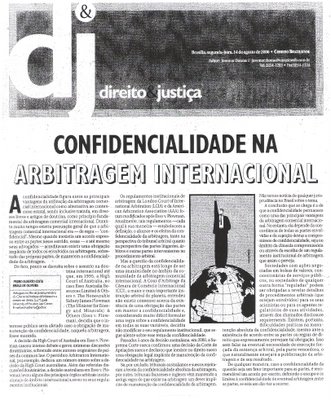Brazilian law limits the enforceability of an arbitration agreement to the agreement's signatory parties. Arbitration is a voluntary method of dispute resolution, where the parties surrender their constitutional right to access the court system to hear their claims. Arbitration is, therefore, a consensual matter materialized in the parties’ arbitration agreement.
The
Brazilian Federal Arbitration Act (the "
Act") does not expressly authorize an arbitrator or a court of law to extend the arbitral clause to a third party. Notwithstanding the lack of an express provision for third-party joinder in the Act, the 7th Chamber of the São Paulo Appellate Court (the “
Court”) has recently enforced an arbitration agreement to a non-signatory party.
In a case opposing Brazilian company ANEL - EMPREENDIMENTOS, PARTICIPAÇÕES E AGROPECUÁRIA LTDA. (“
Anel”) to Swedish company TRELLEBORG INDUSTRI AB (“
Trelleborg”) and its Brazilian branch TRELLEBORG DO BRASIL LTDA. (“
Trelleborg Brazil”), the Court extended the arbitral clause to Trelleborg, a non-signatory party of the arbitration agreement. The arbitration agreement was included in the by-laws of a company founded by Anel and Trelleborg Brazil, but the Court resolved that under the grounds that Trelleborg had played an active role in all negotiations that preceded the organization of the company with its local branch, Trelleborg should participate in the arbitration.
Trelleborg's claims that it was not a party in the agreements subject-matter of the controversy (and therefore not subject to the arbitral proceedings), have not been taken into consideration by the Court.
The "group of companies" doctrine, under which non-signatories of arbitration agreements may be bound to arbitrate and to arbitral awards, was used in Brazil for the first time by a State court. But this was certainly an exception to the principle that limits arbitral clauses to its signatories. In
Anel v. Trelleborg, the Court extended the arbitral clause to Trelleborg because the Court considered that the agreement subject-matter of the controversy, was entered into between Anel, Trelleborg Brazil and its parent company Trelleborg.
